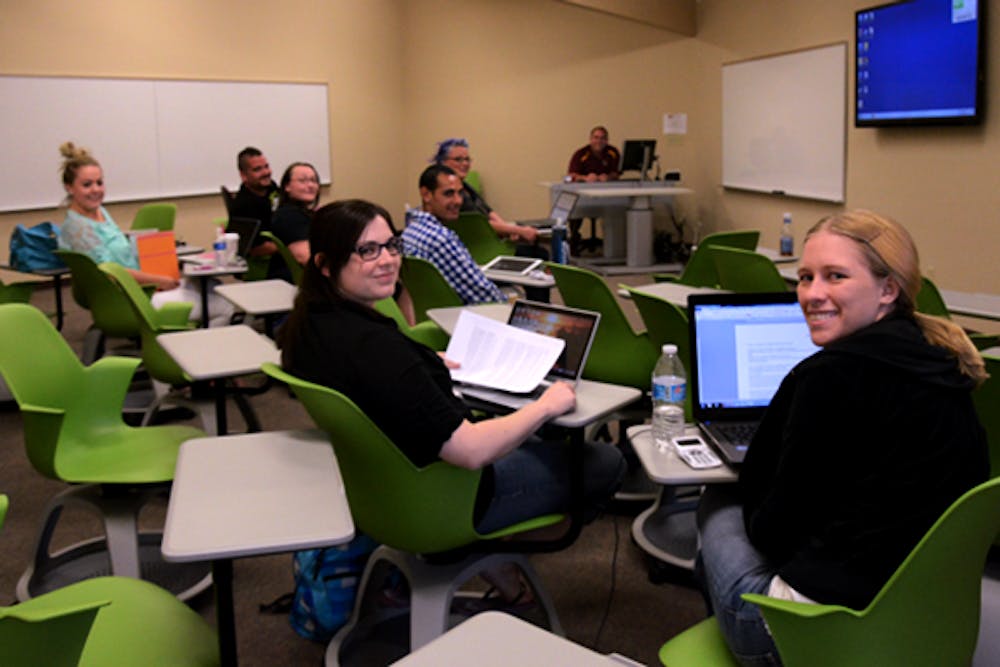When a student who identifies as transgender does not identify themselves in the gender-binary and their birth name does not match their gender identity, taking attendance in class can cause students anxiety and may out the student's private identity.
A public service and public policy graduate student and president of the Rainbow Coalition, Trudie Jackson, said in an emailed statement that going to class and having her name called up as a male name, while appearing female in class, resulted in her eventually dropping out of school.
"If ASU wants to be LGBT friendly, they would need to advise professors to give students the option of what name they would like to be called in class," she wrote in the statement. "Not everyone can afford to go through the court process to get your name legally changed, as well as the issue of needing parental support."
ASU’s Rainbow Coalition is drafting a policy that would minimize the possibility of an individual being outed in class when their name doesn't correspond with their gender identity. The policy is meant to protect students, said Allie Hill, second officer for the Rainbow Coalition in an emailed statement.
ASU’s LGBTQ Certificate Program works to create inclusive classrooms on campus for LGBTQ students, among other things. The program issued a guide containing steps that both students and professors can take to ensure a welcoming environment.
One specific step mentioned in the guide correlates directly to the policy in question. The guide advises students and professors to “be aware of the usage of a class roster system (peoplesoft for example) for attendance purposes or visibly displayed to the class, the name listed on the roster may not be the student’s preferred name and could out the student to classmates.”
Another point stressed in the guide is the importance of using inclusive language to refer to a student as a member of the LGBT community and the experiences specific to that community.
“Use precise terms like Lesbian, Gay, Bisexual, Transgender, Queer, and Questioning (LGBTQ) rather than homosexual or gay as an umbrella term. Use terms like partner instead of boyfriend and girlfriend or husband and wife,” is the guide's advice.
Julian Melson, a facilitator and advocate for TransSpectrum Arizona, said that coming out can be a trying experience for anyone due to discrimination or potential marginalization from people they interact with or care about.
“Nobody wants to be ostracized,” Melson said. "This policy has the potential to shield students from that possibility."
Cassandra Pierre, a TransSpectrum board member, said being called by a chosen name outside of a legal setting is important to everyone, transgender or not.
One suggestion by Pierre included an option during enrollment and registration to include a name of preference that would appear on class rosters.
The process to legally change a name can be confusing, expensive and time consuming. These difficulties make it a less likely and sometimes impossible step for students to take. Age restrictions are another hurdle for younger students. Requirements and costs vary from state to state which may aggravate the process further.
CORRECTION: An earlier version of this article cited the wrong attribution to Trudie Jackson and Allie Hill.
CORRECTION: An earlier version of this article misstated Tempe USG's involvement with the name of choice policy. This version of the story has been updated with the correct information.
Related Links:
Transgender actress, activist Laverne Cox speaks at ASU
ASU unveils more gender neutral restrooms on campus




